Ahoy, squirts! Quint here with another Santa Barbara Film Festival panel to report on. I've already done the writers panel and now it's time for some directors.
The directors being honored tonight are Damien Chazelle (Whiplash), Richard Linklater (Boyhood), Bennett Miller (Foxcatcher), Laura Poitras (Citzenfour) and Morten Tyldum (The Imitation Game). I think this is going to be like the actors panel I wrote up (Virtuosos) where they interview these guys one at a time, so I'll keep a running list in bullet-point format of anything they say that piques my interest or tickles my funny bone.
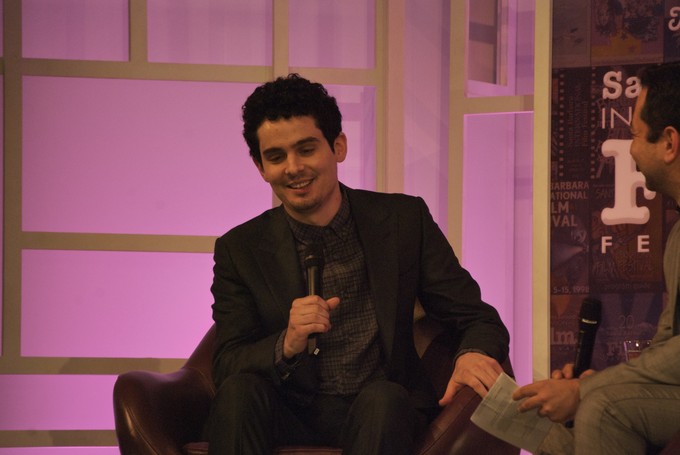
Damien Chazelle
-Origins of the Whiplash script and characters: ”I was a drummer and I had a teacher and... well, that's it.” Teacher was overbearing, but not really abusive. 10 years after that experience he looked back and realized that he became a good drummer because, in large part, to the strict teacher he had. For the movie he wanted to take the gray area out of whether or not the teacher was abusive, but instead make the gray area whether or not there's value in that kind of abusive teacher.
-The hour before meeting JK Simmons for the first time was one of the most terrifying moments of Chazelle's life.
-”I like movies best when it feels like music, when the actors feel like musicians and the editing feels like drumming.”
-One of the greatest thing the original short did was cement JK Simmons in the role. Chazelle said he was told JK could be in the movie, but he'd have to reconfigure it for $200-$300k instead of the couple of million he needed to tell it the way he does. After the short nobody could see anybody but JK in the role.
-Said he was warned that the assembly cut of a movie is always traumatizing, but even though wasn't prepared for just how awful it was to see his film in an incomplete state. He said his editor jokes that the job of a movie editor is more than just cutting the movie, but also as therapist for the director.
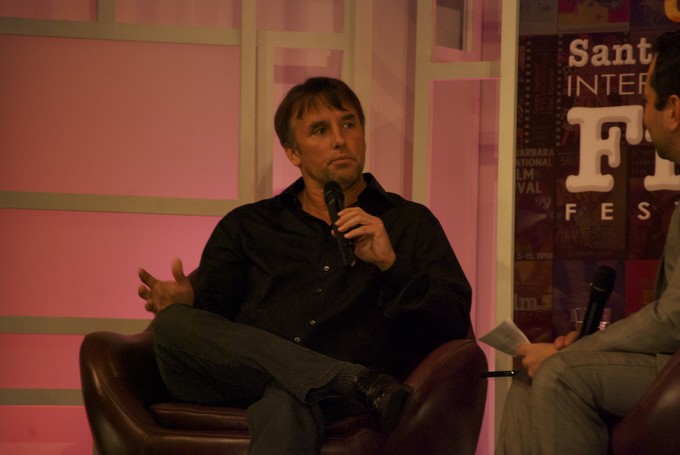
Richard Linklater
-Moved to Austin in '83 and started the Austin Film Society in '85. “There's also a big film school there... that I never attended.” Cue laughs from the audience.
-He has a lot of scripts in various forms of completion, thanks largely to having trouble finding funding for what he wants to be the next film. ”For every one film you get made there are two more jumbled in there.”
-Linklater said Boyhood is the flip side of the Before films. Both use time a structural device, but it's radically different checking in on the same couple every few years than spending one movie following a kid into adulthood.
-”I don't like plot. I'm easily confused in movies, so I'm working around my weaknesses. I'm a simple storyteller. I want people to communicate directly.”
-Said even when he does a movie he doesn't originate he has “delude” himself into thinking he's the best director to make it. He's offered a lot of projects, but most of them he turns down because he thinks someone else can do it better.
-Before Trilogy was autobiographical, but it was still pretty much based on one single night meeting a girl in Philadelphia whereas Boyhood is pretty much his life memories filtered through his cast. He called it his most autobiographical film to date because of that.
-Seems to like the filming more than the writing. Said the collaboration is pretty much the carrot that keeps him going while writing alone.
-Linklater's daughter came close to dropping out halfway through. Around age 12 or 13 she said, “Dad? Can my character, like... die?” She didn't drop out, though. “I think it helped when she realized she was getting paid. Then it was 'When are we shooting the next part?'”
-Another 12 years with these characters? He never thought about it before, but he said he's been waking up with the thought “You know, the 20s are a really exciting time, too...” He said if it happens it'll be because something bigger compels him. “It's not enough that it's fun to work with these guys.”
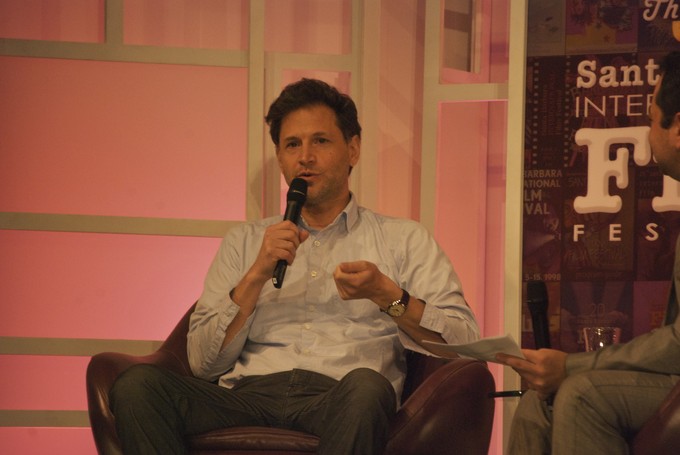
Bennett Miller
-Where did Miller first hear this story? “About 8 years ago I was in a store and a stranger approached me with an envelope that contained newspaper clippings about this story.”
-He's drawn to eccentricity. “Not just because it's colorful, but if you're eccentric you have a different perspective. I don't know what I gravitate towards characters who are in worlds where they feel they don't belong, but I think DaVinci said every portrait is a self-portrait.”
-Miller said he's not great at facilitating performances and it's a struggle for him to reach “a standard which I share with an actor.”
-What gave him the confidence to cast Steve Carrell in this role? ”Comic actors have a public persona that is very different from their private reality.” Also cited past comic actors asked to go serious, like Jerry Lewis in King of Comedy and even his experiences with Jonah Hill in Moneyball.
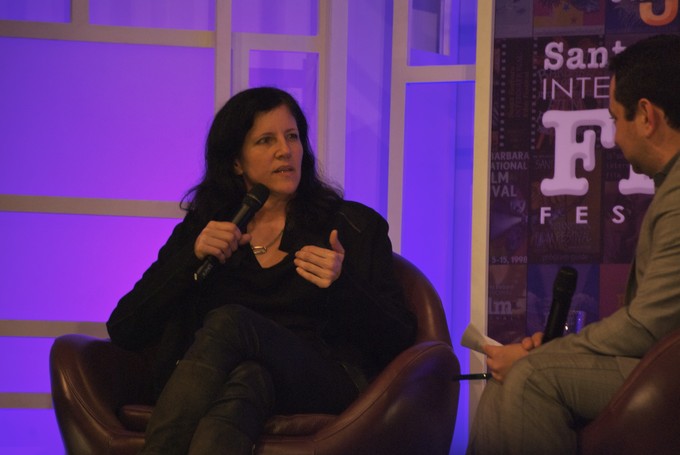
Laura Poitras
-”Right after 9/11 I made a short film at Ground Zero, about people who came out to pay their condolences.” She said that immediately after 9/11 all she felt was an outpouring of compassion. Her films are more a reaction to the ramp up to the Iraq War and the dangerous territory she felt the country was moving towards.
-Made her first documentary critical of Iraq and was immediately watchlisted, to the point where she was almost always escorted off of planes and taken to the secret question rooms under guard. She now has computers in many countries because she doesn't feel safe bringing her footage and research materials with her when she travels across borders.
-Was there any thought that the first contact from Snowden was actually a trap by the US Government? “I'm not used to cold emails.” She said she's a journalist used to pursuing her subjects, not having them come to her. She said she was cautious, but her first instinct was that it was legitimate. She even met with ACLU lawyers before pursuing this lead to make sure she understood what she could and couldn't do legally. When she asked “Citizenfour” directly if he was trying to entrap her, he replied “You know I'm not trying to entrap you because I'm not asking you to do anything, I'm just giving you information.”
-It was a very secretive project. Radius came on board before they could even announce they were making it.
-Edward Snowden didn't approach Laura because he wanted to make a film. She had to talk him into that. What he wanted was someone who wouldn't buckle to pressure from the government.
-Snowden's reaction to the film? “I am still in regular contact with him, but usually when I'm reporting on stories from those documents.” They held a screening in Moscow specifically for Snowden and he was happy with it. She said he had no expectation for how it'd turn out.
-Would she ever jump to narrative filmmaking? She said one of the driving forces of her work is that the outcome isn't sure. “I don't know what I'd do if I knew what the end of the film is in advance.”
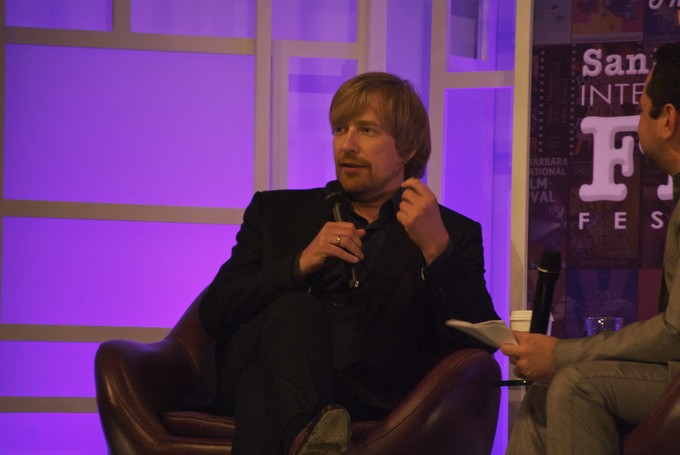
Morden Tyldum
-After such a huge success within his own country with Headhunters, why did he jump over to English language filmmaking? He was warned “Don't go to Hollywood! They're going to control you and you're going to lose all your freedom.” “I had a project, came over here, brought my family, and it fell apart immediately. They were right!”
-Benedict Cumberbatch was Morden's first thought when he read the script. He said there's a mystery around him and his performances that is undeniable.
-Why has the film connected with audiences the way it has? “I think it's very relatable, what Alan goes through and what Joan, Kiera's character, goes through. There's something admirable about someone obsessed with a vision.”
-Received an email from a 92 year old man who was prosecuted and put in jail for being gay around that time and that it brought him to tears.
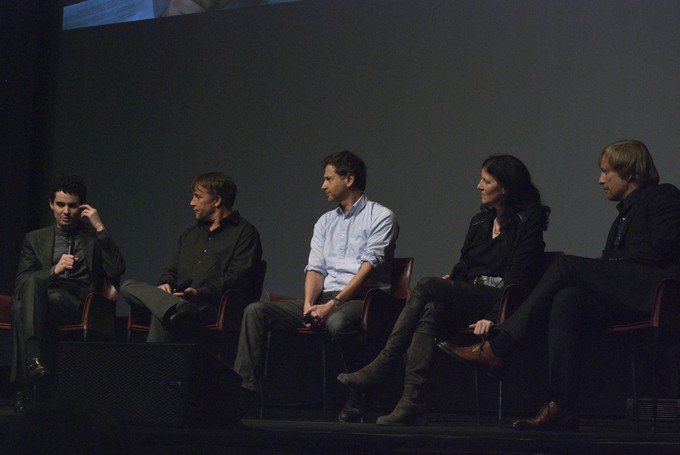
And that's a wrap on that panel. Thanks for following along! Stay tuned for a few more fest reviews, including one for a really great little doc on Hal Holbrook and his portrayal of Mark Twain.
-Eric Vespe
”Quint”
quint@aintitcool.com
Follow Me On Twitter

